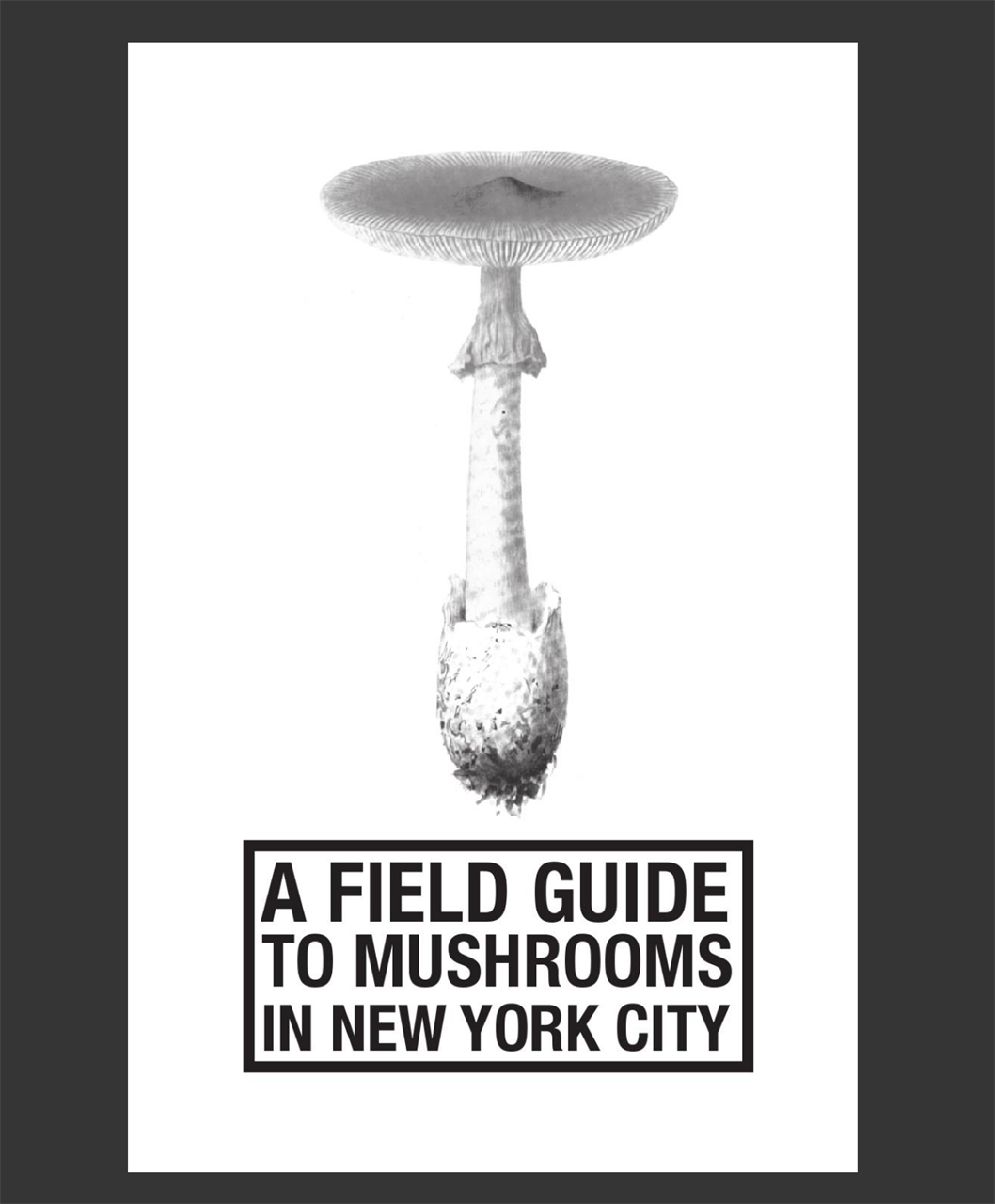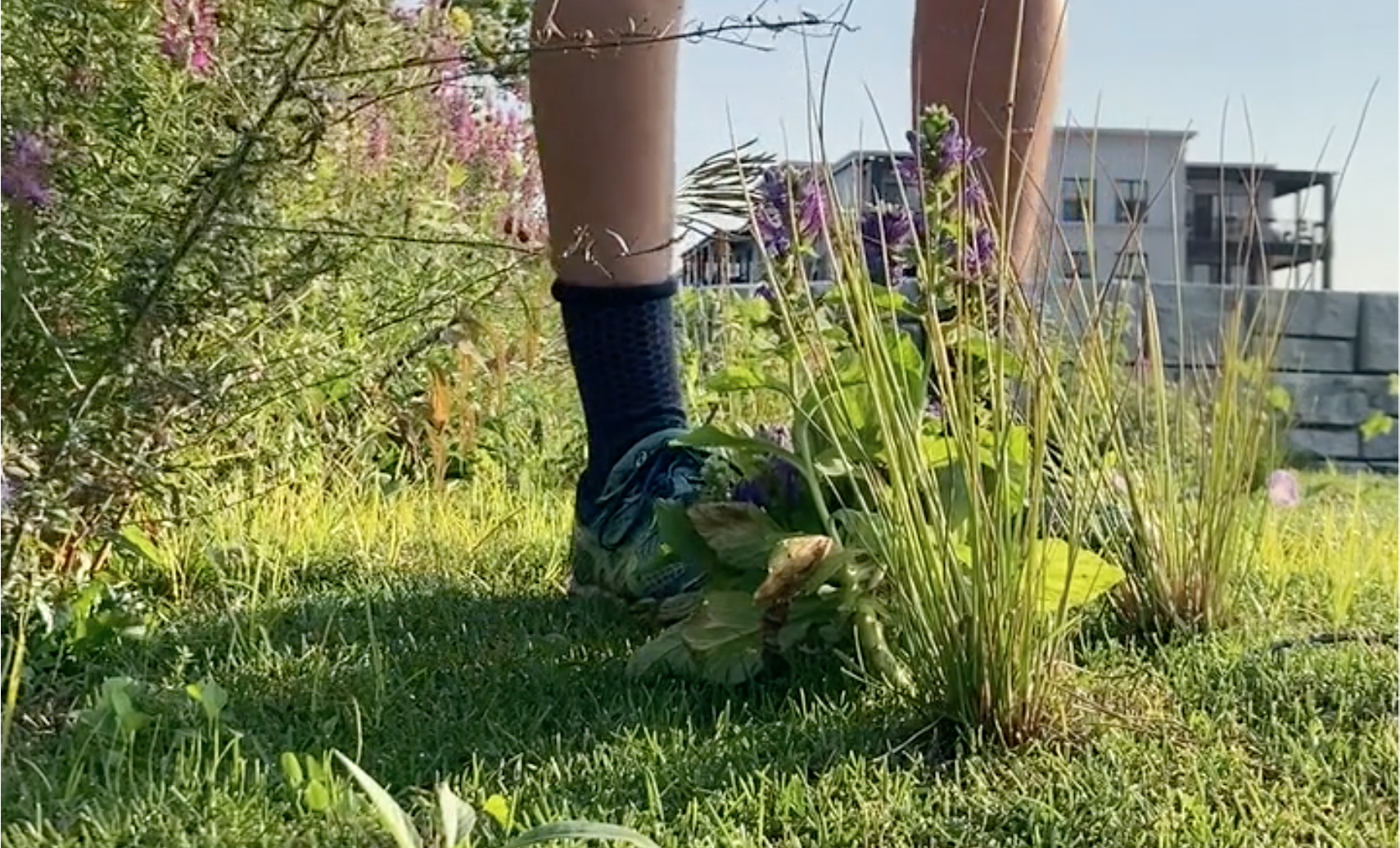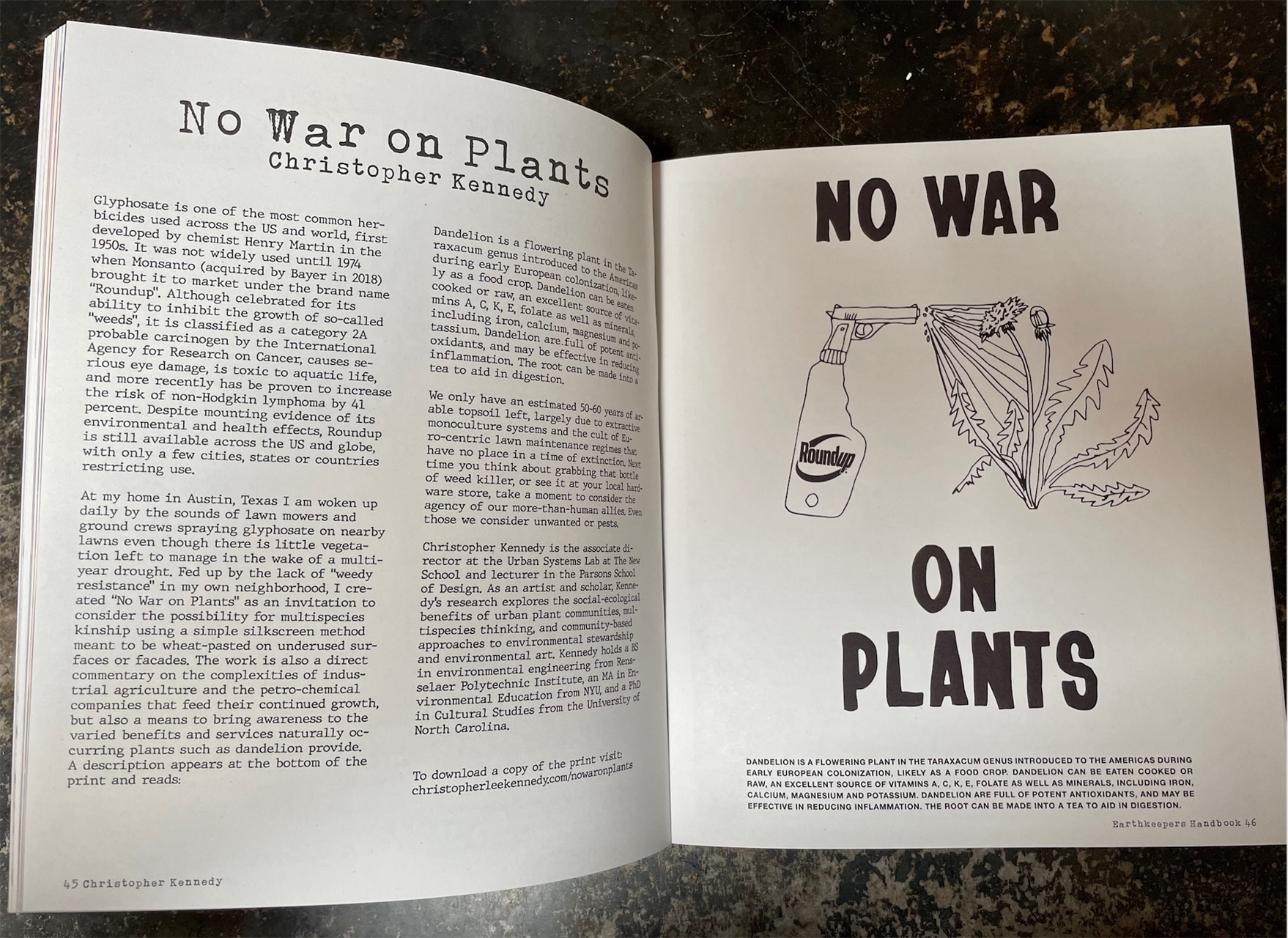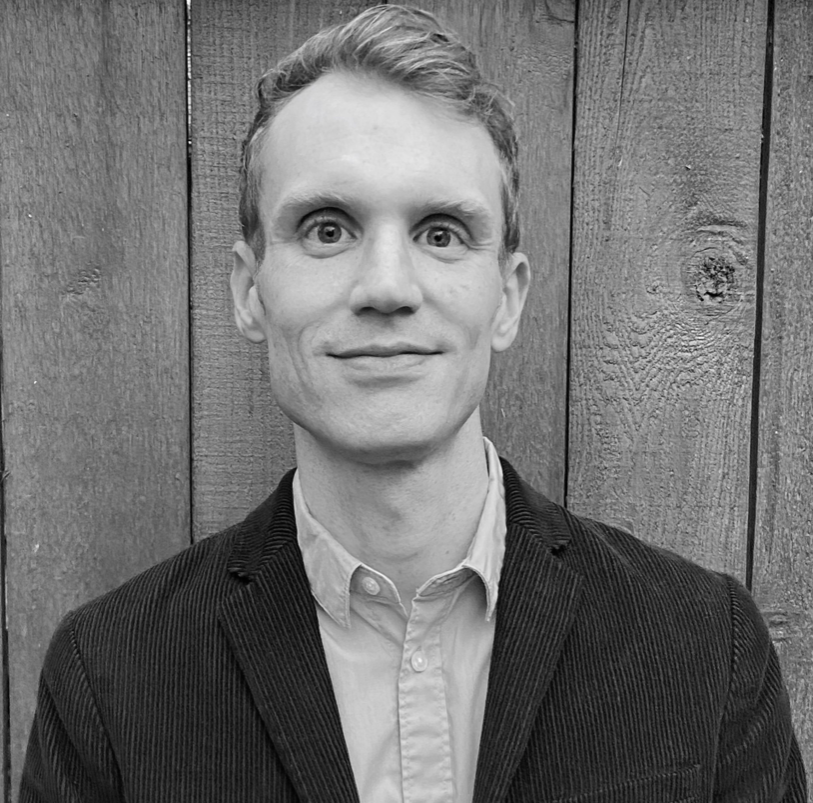
MEMBER SPOTLIGHT
July 3, 2023
This week we recognize Christopher KennChristopher Kennedy, and his career as an artist and designer bringing attention to environmental stewardship through civic engagement.
The Field Guide to Mushrooms in New York City (above) was created in 2012, and is an introduction to hunting for wild mushrooms. "Come along with us and explore the latent potential of the fungi kingdom in New York City! HUNT for mushrooms in the city with the help of this guide. This publication was created as part of the Queens Arts Express, an annual spring arts festival is packed with arts exhibitions, festive events, and live performances in public spaces throughout neighborhoods clustered along the 7 train route. The MycoMap project is a collaboration between: Strataspore, the Urban Landscape Lab, Sarah Williams of the Spatial Information Design Lab, Anne Yen Illustrator, Erica Schapiro-Sakashita, and Networked Organisms and their Habitats."
click images for more info

“Chance Ecologies,” 2015 (above) is a framework for artistic gestures and research projects exploring the un-designed landscapes and wilderness found in abandoned spaces, post-industrial sites, and landfills. The main trajectories of the project are to create research and discourse around the value of wild spaces in the urban environment; to document, learn from, and commemorate the naturally occurring ecosystems that are being lost to development; and to articulate contemporary readings of and new forms of relating to (urban) wilderness. Chance Ecologies began investigating its first project site, Hunter’s Point South, Queens, in the summer of 2015, with a group of 20 international artists creating research-based arts projects documenting and mapping this site, working with materials on site, and creating photo & video on site.”

“The Environmental Performance Agency’s Multispecies Care Survey,2017 (above)was a public engagement and data gathering initiative meant to provoke and articulate forms of environmental agency that de-center human supremacy and facilitate the co-generation of embodied, localized plant-human care practices. This work was a continuation of the EPA’s work in response to the dismantling of the U.S. Environmental Protection Agency under the 2016-2020 presidential administration. With this project, the collective asked for public input: In a time of pandemic crisis, how do we re-value what care means for all living beings? An online survey and series of protocols, as well as facilitated Multispecies Community Care Circles were presented. The data gathered through this survey is meant to work towards drafting a new piece of policy, The Multispecies Act. This Act aims to offer a set of embodied, actionable principles for centering spontaneous urban plant life as one means (among many) of contending with the failure of our environmental regulatory apparatus to deliver policy that protects and values life both human and non-human.”

“Suit Up: Join the Emergent Plantocene Clean-Up,” 2019 (above) was a project and installation for the exhibition The Department of Human and Natural Services at NURTUREart. EPA Embodied Scientist Training was a call to participate in a multispecies coalition of embodied scientists, activists, and spontaneous plants who are re-imagining federal policy and agency in the face of imminent climate crises and mass extinction. In response to the US Environmental Protection Agency’s unprecedented rollback of 75+ federal environmental rules and regulations the EPA Embodied Scientist Training is a call to intimate action! The installation featured a training video, suggested fieldwork scores, and the needed gear and equipment to hit the streets as an EPA agent and gather first hand experience collecting environmental data and performing an emergent Plantocene clean-up.”
Glyphosate is one of the most common herbicides, first developed by chemist Henry Martin in the 1950s for the company Cilag. It was not widely used until 1974 when Monsanto (acquired by Bayer in 2018) brought it to market under the brand name “Roundup.” At Kennedy’s home in Austin, Texas he is woken up daily by the sounds of lawn mowers and ground crews spraying glyphosate on nearby lawns even though there is little vegetation left to manage in the wake of a multi-year drought. Fed up by the lack of “weedy resistance” in his own neighborhood, he created “No War on Plants,” in 2022, as a simple silkscreen print meant to be wheat-pasted along the streets of Austin. The work is a direct commentary on the complexities of industrial agriculture and the petro-chemical companies that feed their continued growth.

Christopher Kennedy is the associate director at the Urban Systems Lab, The New School and lecturer in the Parsons School of Design. Kennedy’s research focuses on the social-ecological benefits of urban plant communities, and the role of civic engagement in developing new approaches to environmental stewardship and nature-based resilience. As artist-designer Kennedy creates site-specific projects that examine conventional notions of “Nature,” interspecies agency, and biocultural collaboration. Drawing from a background in environmental engineering, Kennedy re-imagines field science techniques and new forms of storytelling to develop embodied research, installations, sculptures, and publications that recontextualize social-ecological systems. Kennedy has worked collaboratively on projects shown at the Philadelphia Academy of Fine Arts, the North Carolina Museum of Art, the Southeastern Center for Contemporary Art, the Levine Museum of the New South, Hudson Valley Center for Contemporary Art, the Ackland Art Museum and the Queens Museum. He holds a BS in Environmental Engineering from RPI, a MA in Environmental Conservation Education from NYU and a PhD in Cultural Studies from the University of North Carolina. www.christopherkennedy.com
Featured images (top to bottom):©Christopher Kennedy, A Field Guide to Mushrooms in New York City, 2012, published in 2014 on ISSUU; Chance Ecologies, 2015, Hunters Point, South Queens; Multispecies Care Survey, 2017, specimens collected in Central Park; Suit Up: Join the Emergent Plantocene Clean-Up, 2019, included in exhibition titled The Department of Human and Natural Services, curated by Mariel Villeré at NURTUREart; No War on Plants, 2022, silkscreen print (free PDF download), Austin Texas, as pictured in Earthkeepers Handbook, published June 2023; Portrait of Artist.
